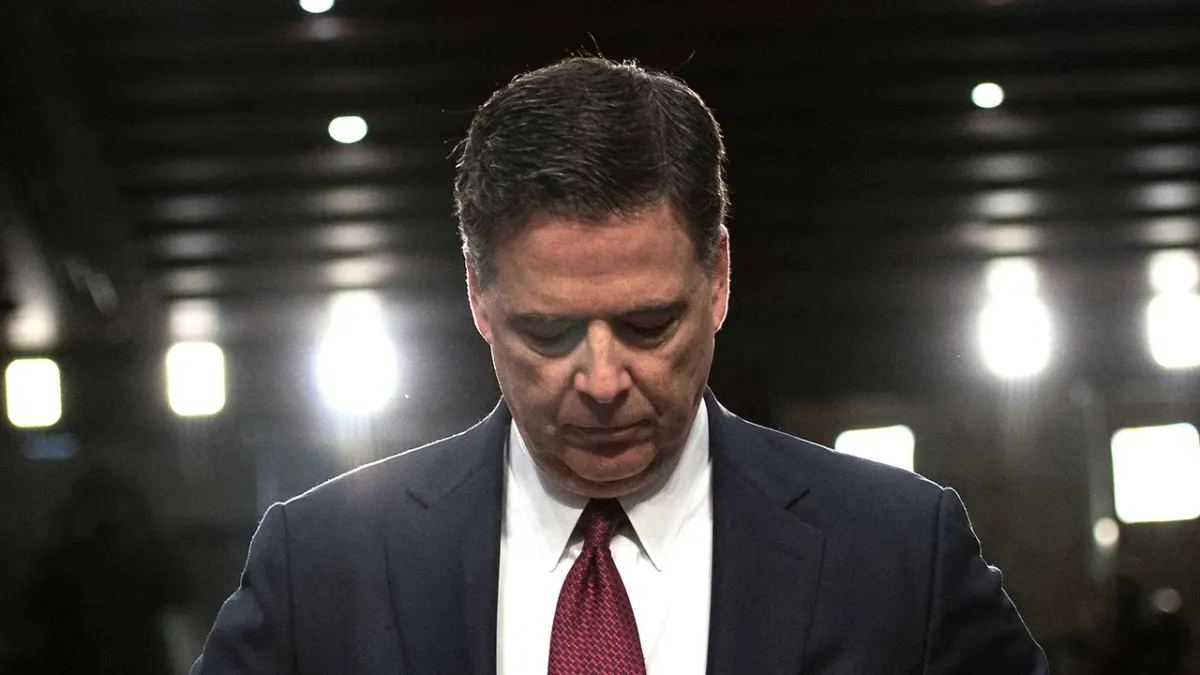James Comey’s Surprising Anti-Trump Seashell Photo Resurfaces Amid 2024 Election Battles
Ex-FBI Director James Comey sparks controversy with latest Instagram post critics call a pointed attack on President Trump.

Former FBI Director James Comey has once again found himself at the center of controversy surrounding his social media activity. Just days before his now-deleted Instagram post featuring seashells arranged to depict the numbers "86 47"—a message widely condemned by White House officials—Comey had previously posted another politically charged image on the same platform. In October 2024, Comey shared a photo of a single, blue-painted seashell with the words "Vote Harris" visible on its surface. The caption read, "Saw this at the beach. Ariel understands the assignment," referencing Disney's "The Little Mermaid." This post, like his more recent one, was viewed as a public display of political sentiment.
The incidents have drawn significant attention, especially after the Secret Service confirmed that it would dispatch agents to interview Comey regarding the seashell posts. Critics, including some within law enforcement, raised alarms about the potential for such coded messages to be misinterpreted or weaponized in the current heated political climate.
The '8647' Post and Its Fallout
- Comey's Instagram post displaying "86 47" in seashells was swiftly criticized and interpreted by some as a threat to the 47th president.
- Former Hawaii congresswoman Tulsi Gabbard called the post "dangerous," warning against underestimating its implications.
- Comey promptly deleted the post, later clarifying: "I didn't realize some folks associate those numbers with violence. It never occurred to me but I oppose violence of any kind so I took the post down."
The FBI, which Comey once led before being dismissed by then-President Donald Trump, declined to comment on the matter. However, Trump's current FBI director, Kash Patel, acknowledged on social media that the agency was monitoring the situation, stating, "We are in communication with the Secret Service and Director Curran... the FBI will provide all necessary support."
Republican lawmakers were quick to respond. Senator Ted Cruz underscored Comey's history with Trump, claiming, "There is no doubt that James Comey hated Donald Trump. There is also no doubt that the extreme rhetoric from the left contributes to an atmosphere of violence." Representative Andy Ogles of Tennessee voiced similar concerns, arguing that there was a double standard in reactions to political messaging, stating, "If a right-winger posted this against a leftist, all hell would break loose..."
Comey's pattern of posting politically suggestive content on social media is not new. In the past year, he has shared messages supporting transgender rights and reposted what he described as a "message from my former colleagues," which included sharp criticism presumably aimed at Trump and his allies.
As scrutiny over online rhetoric and its influence continues to intensify in the lead-up to the November elections, Comey's actions have sparked renewed debate over the responsibilities of public figures—even those who have transitioned into private life—regarding the messages they disseminate online. The investigation by the Secret Service and ongoing public discussion underscore the heightened sensitivity to political discourse and perceived incitement in today's climate.
